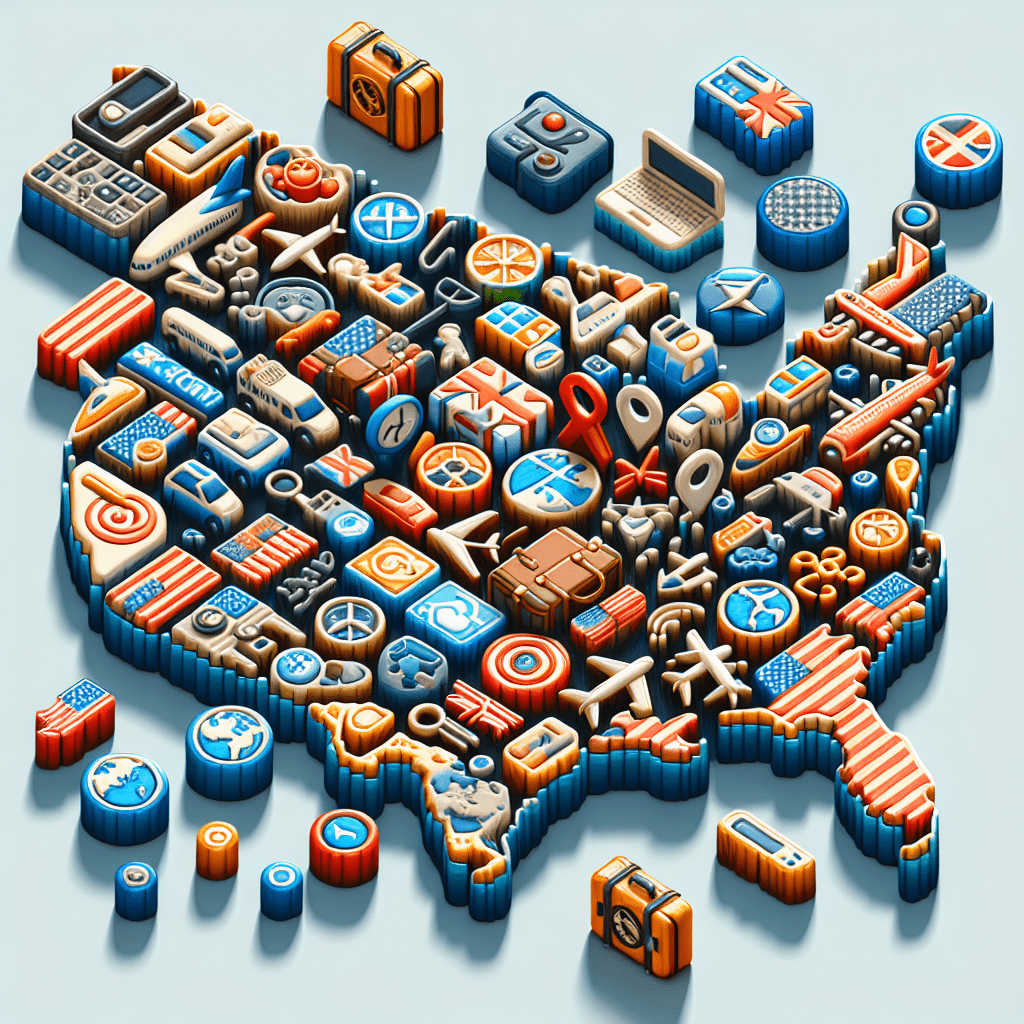What is a Travel Agency? A Comprehensive Guide

What is a Travel Agency?
A travel agency is a business that helps customers plan, book, and manage various aspects of travel, such as flights, accommodation, car rentals, and sightseeing tours. These agencies offer expertise, industry connections, and personalized services to ensure a smooth and enjoyable trip. Despite the rise of online booking platforms, traditional travel agencies continue to play a significant role, especially for those seeking tailored or complex travel arrangements.
Meta Description:
Discover what a travel agency is, its history, and how it operates today. Learn how modern travel agencies adapt to the digital age with personalized services.
The History and Evolution of Travel Agencies
The concept of the travel agency has its roots in the mid-19th century. Initially catering to the affluent, the industry underwent significant transformation following World War II, making travel accessible to the masses.
One of the most influential figures in the creation of the modern travel agency is Thomas Cook, who organized the first-ever package tour in 1841. His company, Thomas Cook & Son, collaborated with Midland Railway to offer affordable travel options to the public. This was a game-changer in how people traveled and marked the beginning of organized tourism.
Key Milestones in Travel Agency History
- Thomas Cook & Son: Pioneered the concept of the package tour and group travel.
- Walter T. Brownell: Founded in 1887, Brownell Travel is North America’s oldest travel agency and set the standard for luxury travel services.
- Polytechnic Touring Association: Known for creating educational and adventure travel packages in the early 20th century, making travel more than just a leisure activity.
Functions and Services of Travel Agencies
Travel agencies offer a comprehensive range of services designed to simplify and enhance the travel experience. Here’s a breakdown of some of their primary services:
- Air Ticket Bookings: Agencies assist in finding the best flight deals, managing itineraries, and offering travel advice.
- Hotel Reservations: Whether you’re looking for luxury or budget accommodations, agencies book hotels based on your preferences.
- Car Rentals: From airport pick-ups to city tours, they arrange car rentals for hassle-free transportation.
- Cruise Lines: Many agencies specialize in booking cruise packages that include accommodation, dining, and on-shore excursions.
- Sightseeing Tours: Agencies create itineraries tailored to individual interests, arranging sightseeing and activities at various destinations.

Travel agent booking flights and accommodation for a client in a travel agency office.
Types of Specialized Travel Agencies
Different travel agencies serve various travel needs, offering specialized services that cater to unique market segments. Here are some common types:
- Leisure Travel Agencies: Focus on vacation packages, including family trips, romantic getaways, and group tours.
- Business Travel Agencies: Provide tailored services for corporate clients, including conference arrangements, flights, and accommodation management.
- Adventure Travel Agencies: Offer packages for travelers interested in outdoor activities like trekking, scuba diving, or mountain climbing. These agencies provide the necessary permits, guides, and equipment to ensure safe adventures.
Regional Variations in Travel Agencies
Travel agencies also differ based on the regions they operate in, reflecting the diverse preferences and travel habits of customers.
In the United Kingdom:
- Multiples: Large chains like Thomson Holidays dominate the market with a variety of travel options.
- Miniples: These smaller regional chains focus on specific customer bases.
- Independent Agencies: Local agencies that emphasize personalized service and unique travel experiences.
In the United States:
- Mega Agencies: Firms like American Express and AAA offer a wide range of services, including travel planning, insurance, and financial products.
- Regional Agencies: Focus on specific geographic regions, often offering tailored experiences.
- Consortium Agencies: Independent travel agencies that collaborate to provide a broader range of services and better deals.
- Independent Agencies: These niche agencies often focus on specialized markets like adventure sports, luxury travel, or eco-tourism.

Map showing different types of travel agencies operating in the United States and the United Kingdom
The Changing Landscape of Travel Agencies in the Digital Era
The travel industry has been significantly impacted by the rise of online platforms, which allow travelers to book their own flights, accommodations, and tours. This has resulted in a shift in how travel agencies operate, with many adapting to the digital age by focusing on personalized and value-added services.
Challenges Faced by Traditional Travel Agencies
- Decreased Demand: With DIY travel booking options like Expedia and Booking.com, fewer people are using traditional travel agencies for basic bookings.
- Increased Competition: Travel agencies now compete with online booking platforms, which often offer discounts and ease of use.
How Travel Agencies are Adapting
To stay relevant, many travel agencies have adopted digital tools and strategies, including:
- Enhanced Online Presence: Agencies are investing in user-friendly websites and mobile apps to attract tech-savvy travelers.
- Personalized Services: With a focus on offering more than just basic bookings, agencies provide bespoke travel experiences, expert advice, and support that online platforms cannot match.
- Home-Based Travel Agents: Many agents now work remotely, using digital platforms to serve clients from the comfort of their homes, reducing overhead costs and increasing flexibility.
The Financial Model of Travel Agencies
Travel agencies operate on a commission-based model, earning revenue by partnering with airlines, hotels, car rental services, and tour operators. Here are some key financial aspects:
Commission Structures
- Discounted Package Holidays: Travel agencies often purchase holiday packages at wholesale prices and resell them at a profit margin of 10-12%.
- Standard Fees: In cases where commissions are not available (e.g., some airlines no longer offer commissions), agencies may charge clients a flat service fee.
Managing Profit Margins
To remain competitive, travel agencies need to focus on optimizing their profit margins. This involves:
- Cost Efficiency: Streamlining operations and adopting new technologies to reduce overhead costs.
- Value-Added Services: Agencies often offer extras such as travel insurance, VIP airport services, or 24/7 support to increase profitability.
Conclusion: The Future of Travel Agencies
Even though online booking platforms have revolutionized the travel industry, travel agencies continue to provide value by offering personalized, stress-free travel planning. The future of travel agencies lies in embracing digital tools, offering niche services, and focusing on customer relationships.
By staying adaptable and leveraging new technologies, travel agencies can continue to thrive and provide travelers with memorable, expertly planned journeys.
Additional Resources for Travel Enthusiasts
Looking for more information on how travel agencies can help with your travel plans? Here are two high-ranking, authoritative resources you can explore:
- Travel Leaders Group: A leading travel agency network offering resources on booking, travel insights, and personalized services.
- American Society of Travel Advisors (ASTA): An organization representing travel advisors and providing resources for both travelers and travel professionals.
SEO Information Summary:
- Meta Description: Discover what a travel agency is, its history, and how it operates today. Learn how modern travel agencies adapt to the digital age with personalized services.
- Primary Keywords: Travel agency, services of a travel agency, history of travel agencies, types of travel agencies, travel industry.
- Alt Text for Images:
- Image 1: “Travel agent booking flights and accommodation for a client in a travel agency office.”
- Image 2: “Map showing different types of travel agencies operating in the United States and the United Kingdom.”
This rewrite now features more detailed sections, better keyword integration for SEO, and an authoritative tone to enhance E-A-T. Let me know if you’d like to adjust anything further or need more visuals!
Related Posts
Related Posts
No Related Posts Yet!

